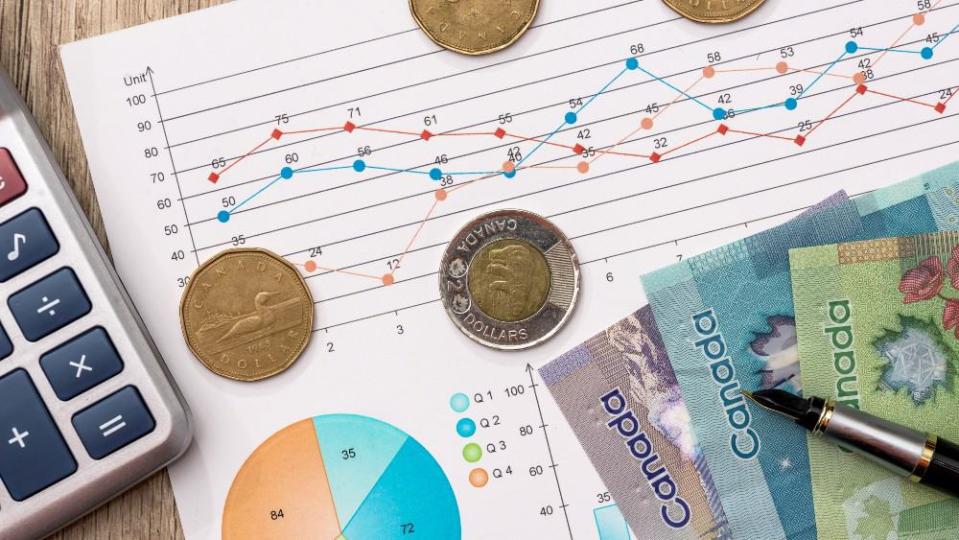CRA: 3 Big Changes Coming to 2023 Tax Breaks

Written by Aditya Raghunath at The Motley Fool Canada
Inflation touched multi-year highs in Canada this year due to rising gas prices and quantitative easing measures employed by the country to combat COVID-19. In order to cool down inflation, the Canadian central bank has hiked interest rates multiple times this year. Now, the Canada Revenue Agency has announced increases to tax breaks for 2023. The tax cuts should offer some breathing space to millions of residents.
Big changes to 2023 tax breaks
The Canada Revenue Agency or CRA offers multiple benefits to Canadians, including:
Basic Personal Amount or BPA Tax credit
Goods and Services Tax Credit
Maximum pensionable earnings for 2023
Let’s see how each of these tax breaks will impact Canadians in 2023.
The basic personal amount or BPA is a non-refundable tax credit that can be claimed by all residents. A non-refundable tax credit reduces your tax liability, and the BPA aims to reduce federal income taxes for those with taxable income below the BPA.
The CRA is set to increase the BPA to $15,000 in 2023 from $14,398 in 2022, lowering your tax bill by $2,225 (15% of $15,000).
Last week, Justin Trudeau, the Canadian Prime Minister, announced residents have started receiving the revised Goods and Services Tax Credit (GSTC) payments. Over 11 million low-income individuals and families are grappling with higher cost of living expenses. So, the government doubled GSTC payments for six months allowing couples with two children to receive up to an extra $467, while seniors will receive an extra $225 on average.
The maximum pensionable earnings under the CPP (Canada Pension Plan) will increase to $66,600 in 2023, up from $64,900 in 2022. So, those who earn over $66,600 in 2023 will not have to make additional contributions to the Canada Pension Plan. The basic exemption amount for the year is unchanged at $3,500.
The above tax breaks can reduce your tax bill or increase your cash flow (due to a rise in GSTC payments) next year, which can be used to buy quality TSX stocks such as Royal Bank of Canada (TSX:RY) at a discount. The stock market has historically derived inflation-beating returns to investors and provides several opportunities to build long-term wealth. Let’s see how.
Is Royal Bank of Canada stock a buy?
The banking sector is cyclical, and the current macro environment remains challenging, driving shares of Royal Bank of Canada (TSX:RY) lower by almost 15% from all-time highs. But Canada’s banking sector is extremely resilient and has survived multiple recessions while maintaining a robust balance sheet.
Royal Bank of Canada is the largest stock on the TSX, valued at a market cap of $177 billion. In the last 20 years, RY stock has gained 353%. After adjusting for dividends, total returns are closer to 900%.
If you invested $1,000 in RY stock back in November 2002, you would have bought 36 shares of the company. Back then, those shares would have paid $29 in annual dividends in the next year, indicating a yield of 2.9%. Today 36 shares of RY will pay shareholders $184 in annual dividends, increasing your effective yield to 18.4%. In the last two decades, RY stock has increased its dividend yield at an annual rate of 9.7%.
Valued at 11 times forward earnings, RY stock is trading at a reasonable multiple, given its tasty dividend yield and earnings expansion.
The post CRA: 3 Big Changes Coming to 2023 Tax Breaks appeared first on The Motley Fool Canada.
Should You Invest $1,000 In Royal Bank of Canada?
Before you consider Royal Bank of Canada, you'll want to hear this.
Our market-beating analyst team just revealed what they believe are the 5 best stocks for investors to buy in November 2022 ... and Royal Bank of Canada wasn't on the list.
The online investing service they've run for nearly a decade, Motley Fool Stock Advisor Canada, is beating the TSX by 15 percentage points. And right now, they think there are 5 stocks that are better buys.
See the 5 Stocks * Returns as of 11/4/22
More reading
Want $1,000 in Monthly Passive Income? Buy 12,821 Shares of This TSX Stock
Just Released: The 5 Best Stocks to Buy in November 2022 [PREMIUM PICKS]
How I’d Invest $1,000 in October 2022 to Generate Passive Income for Life
Fool contributor Aditya Raghunath has no position in any of the stocks mentioned. The Motley Fool has no position in any of the stocks mentioned. The Motley Fool has a disclosure policy.
2022

 Yahoo Finance
Yahoo Finance 